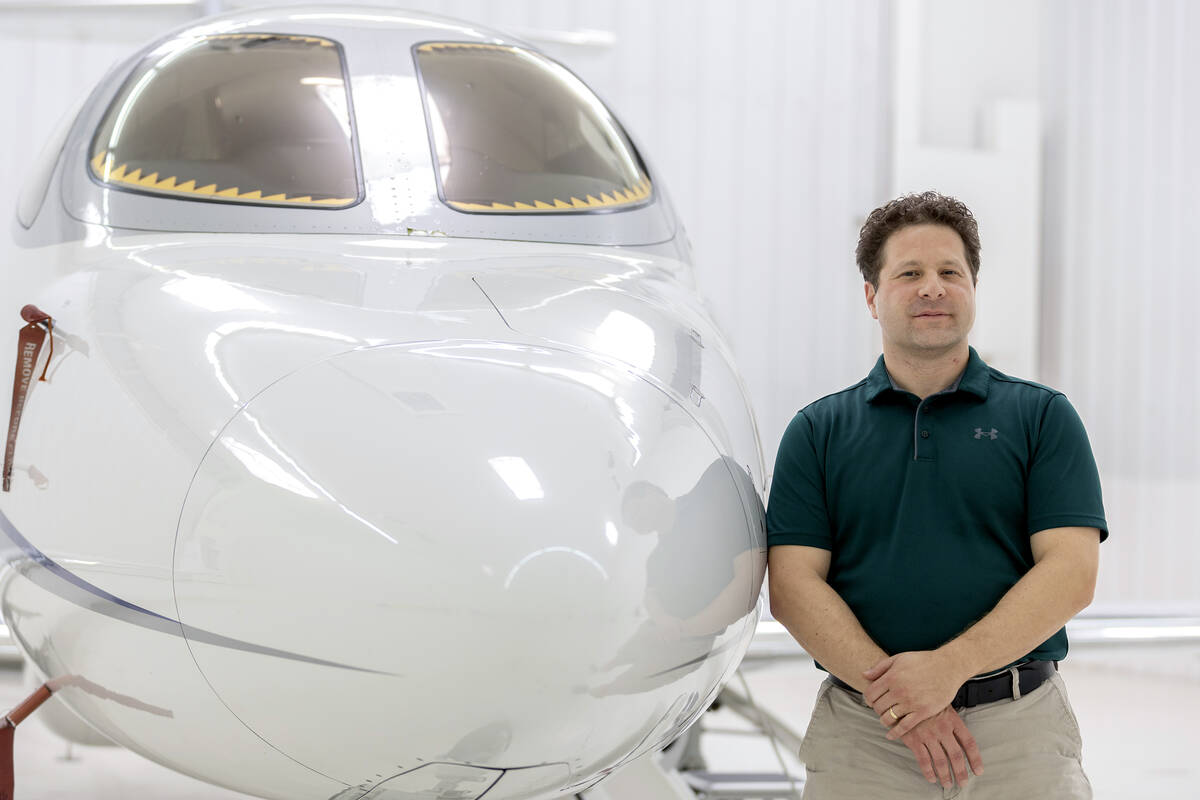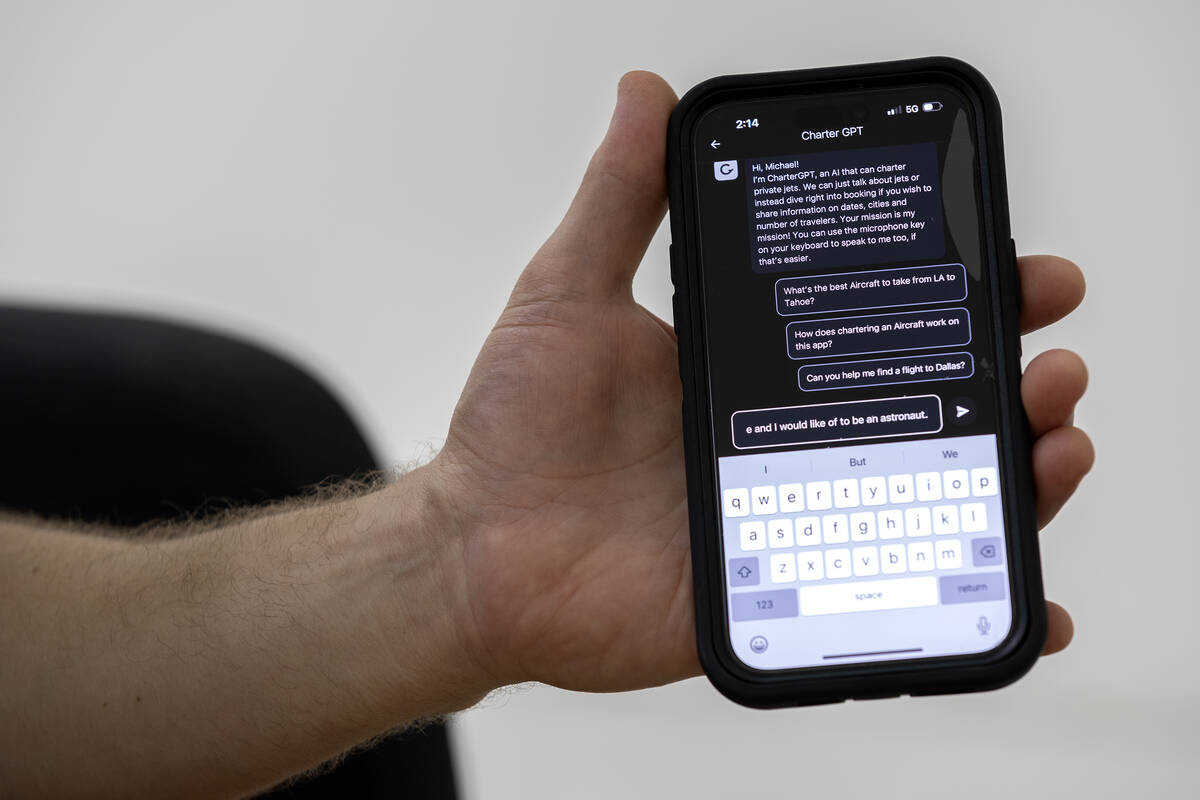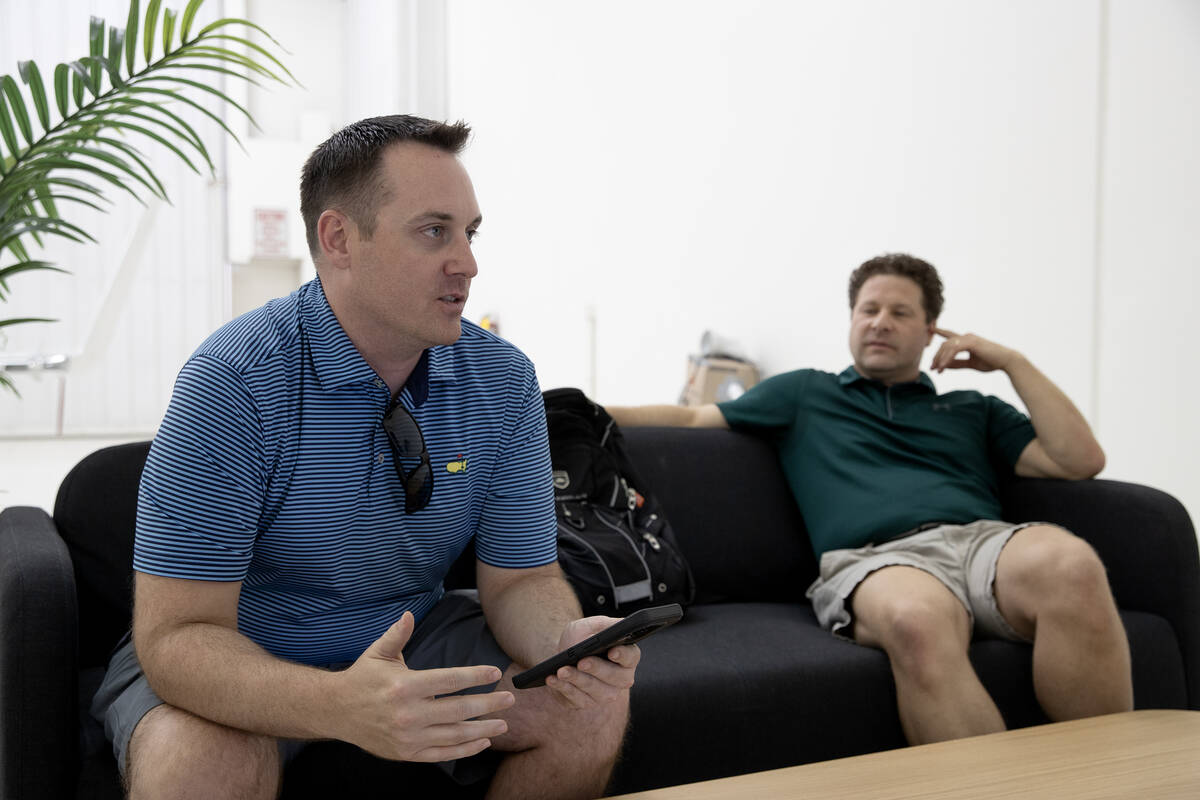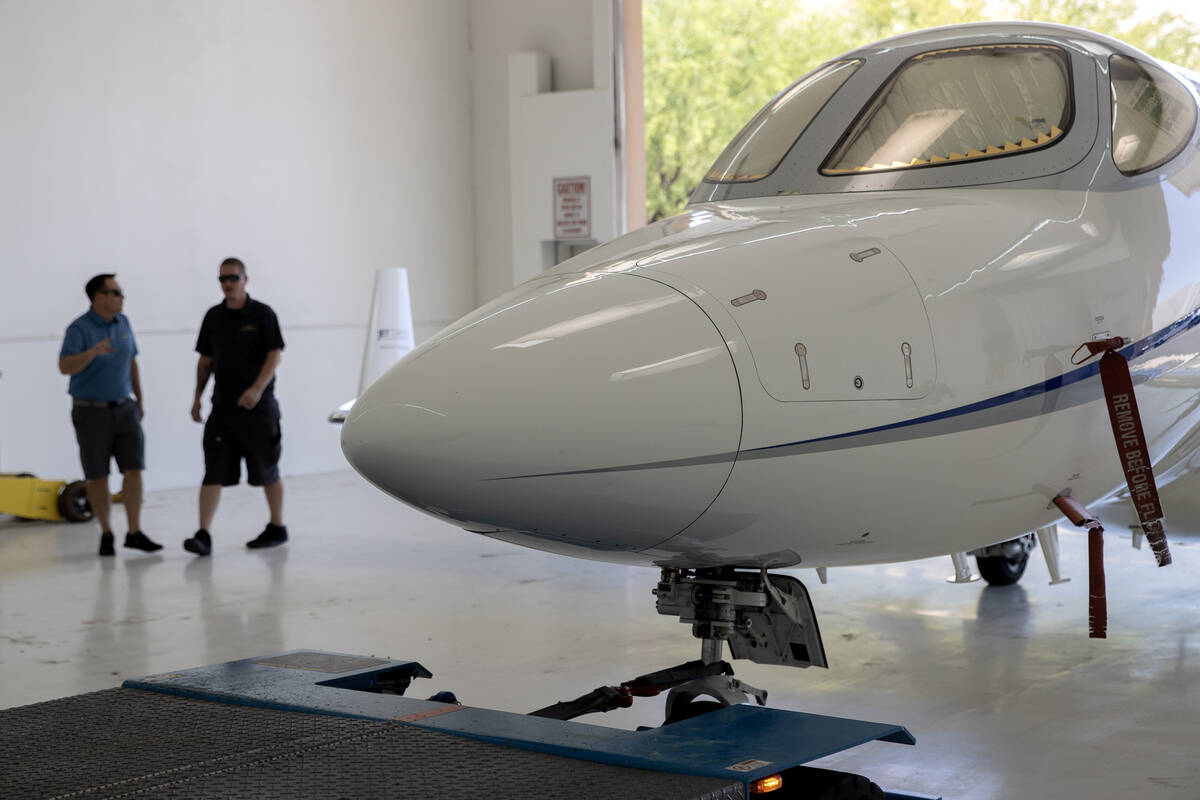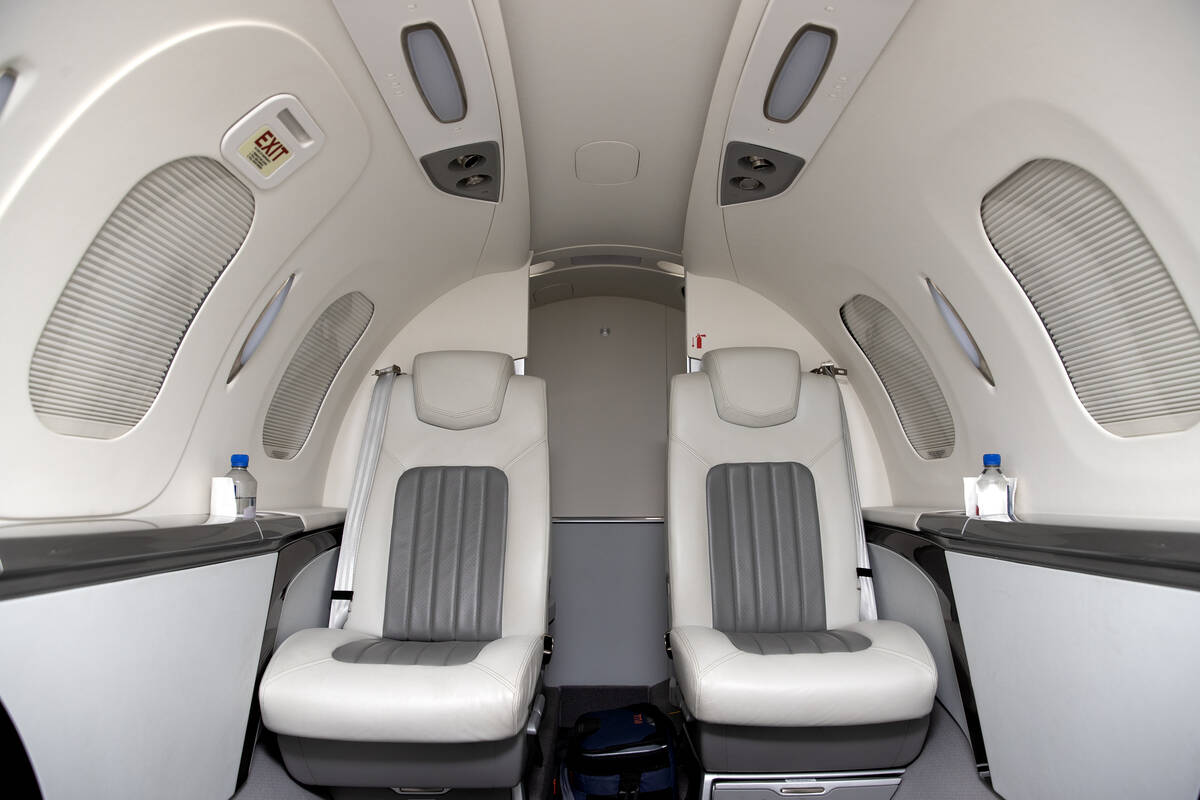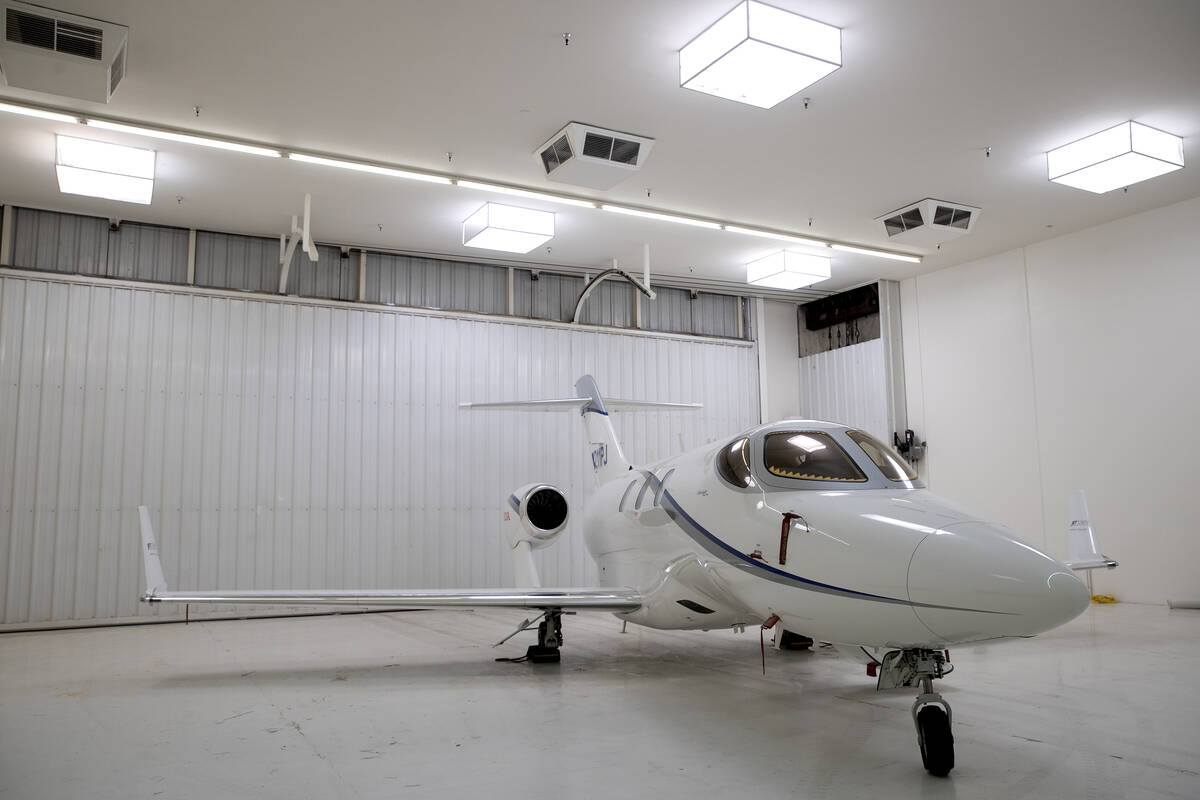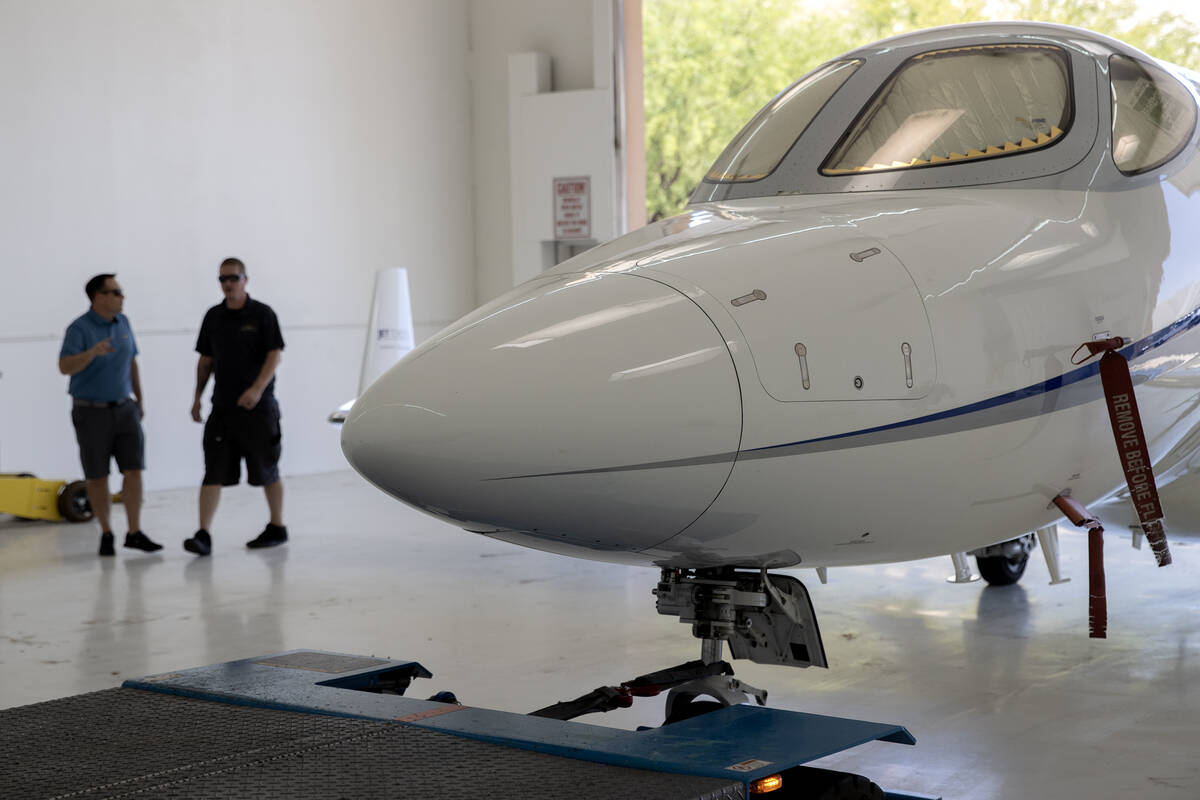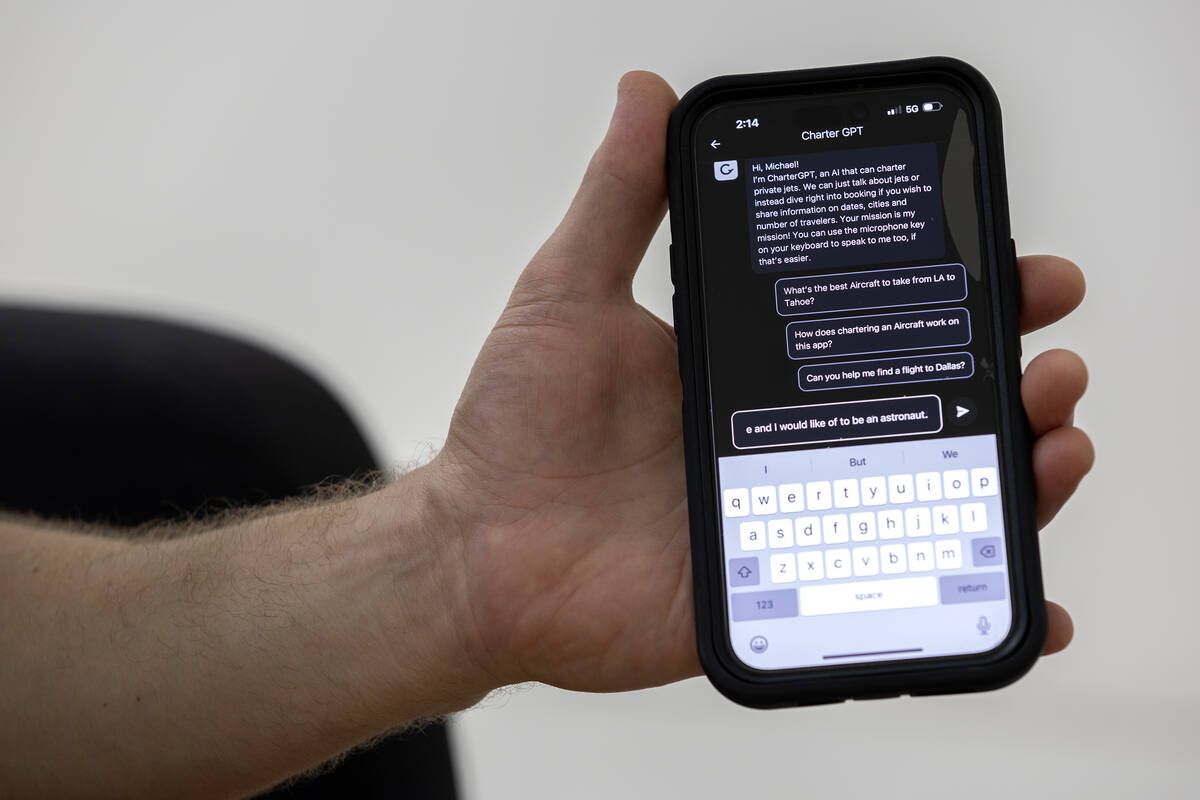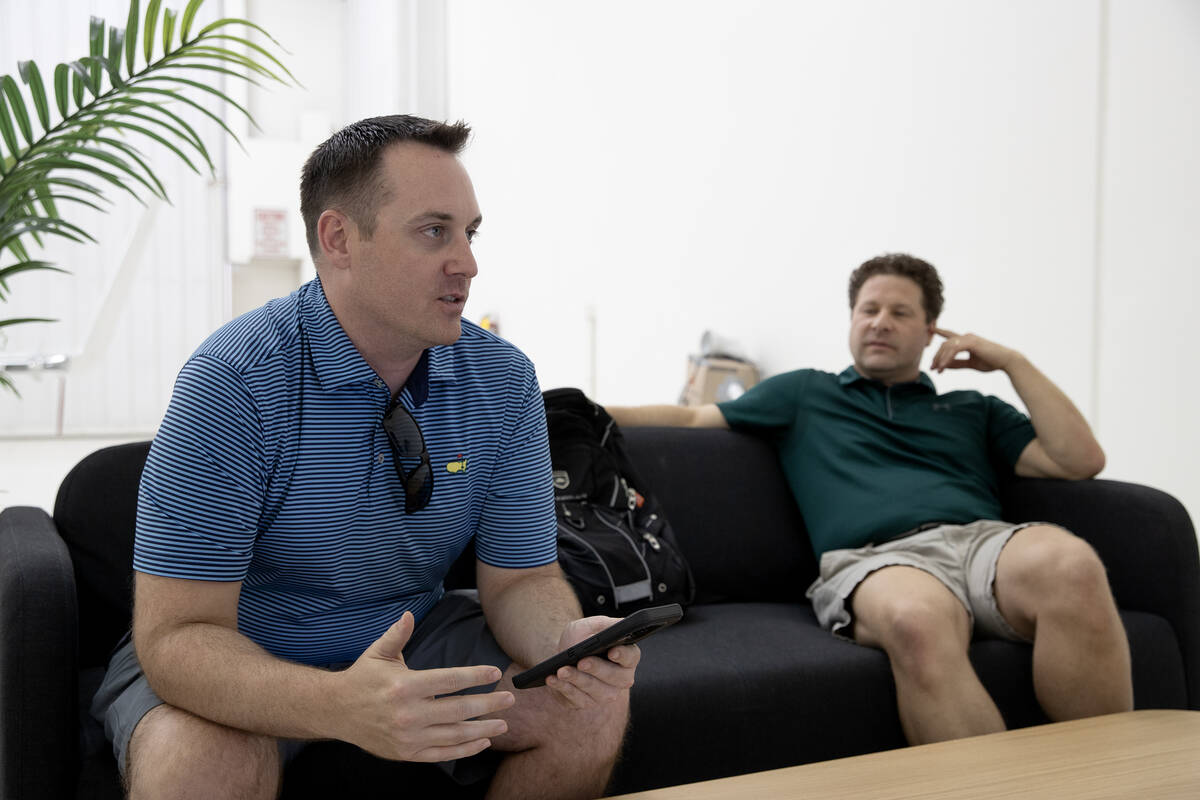Las Vegas aviation company to launch private jet booking app
One Las Vegas company is looking to bring artificial intelligence and ChatGPT to the world of private aviation.
Jet.AI, formerly known as Jet Token, is launching a new app this month called CharterGPT, which uses artificial intelligence or AI technology to allow customers to charter a private jet and review a range of options from price to plane size when doing so.
Jet.AI sees this technology as a way to boost the private aviation industry by making it more efficient to book a private trip while also being one of the first companies to bring AI to the aviation industry in a consumer-facing commercial setting, according to Michael Winston, the executive chairman and founder of the company.
“AI is so incredibly powerful,” he said.
The CharterGPT app uses the basic AI technology of ChatGPT as the base level of software and added its own proprietary level of software that can produce specific information on charter flights and airports, Winston said. The app responds to prompts much like ChatGPT and can provide options based on cost, destinations and contract logistics for each private jet operator.
Jet.AI operates its own fleet of four planes and partners with Cirrus Aviation, which typically has about 30 planes in the Las Vegas area. Jet.AI, which also has business-facing aviation software offerings, developed Jet.AI in about nine months by using logistics information gleaned from its charter operations, Winston said.
Making it simple
Typically if someone wants to charter a private jet, they tell a private jet operator the dates and destination they want to fly, and the operator then sees if it can accommodate the request with its own arsenal of jets and if not use an aviation broker to provide service for the customer.
Working through a broker to book a private jet can take more than four hours as there are about 2,400 small private jet companies in the U.S., with the majority having fewer than 10 planes, Winston said.
“There is a centralized database that most of them participate in, but a lot of them don’t respond to it on time,” he said.
The hope is for this technology to make it simpler to navigate the complex and heavily fragmented industry of private aviation.
Focus on efficiency
Dan Bubb, a former airline pilot who now works as an associate professor in UNLV’s Honors College, thinks CharterGPT could be a good addition to the private aviation industry because of the chances the technology could improve efficiency and profit margins for operators.
“All aviation companies, whether they’re private or commercial, are interested in maximum efficiency, to move people to save costs, and reduce the consumption of fuel for the environment,” Bubb said. “They’re thinking about that all the time.”
Improving efficiency could be especially important for the private aviation industry, which Bubb estimates makes up 20 percent of total flights.
Winston said that most private jet operators while catering to a wealthy clientele — typically it costs about $5,000 per hour of flight time for a private jet — have small profit margins of 5 to 10 percent. He said CharterGPT should also make it easier for customers to shop around different offers and could create more honest competition.
“One of the nice things about CharterGPT is that it’s a harder time lying about what things really are,” Winston said.
Even with the positives of improving the flow of work for private aviation, Bubb raised concerns over the use of AI technology. Mainly shifting operations to AI could make companies a target for hackers and a large investment in cybersecurity is needed with AI and concerns over how quickly the CharterGPT technology can pick up the nuances of human communication in the aviation industry.
“This (AI) basically is analyzing a large volume of data, so how do you accurately evaluate that large volume of data,” Bubb said. “Aviation, we have our own language that we use with air traffic controllers and so how do you get these (AI) programs to basically understand aviation talk?”
With CharterGPT still being introduced to the market, Winston expects there could be some hiccups with the technology.
“We’ll judge success by our ability to create high-paying jobs, for charter brokers to support big volume for CharterGPT,” he said. “So that the relationship between the number of charters and the number of people is the best in the industry.”
Contact Sean Hemmersmeier at shemmersmeier@reviewjournal.com. Follow @seanhemmers34 on Twitter.



